Ambulance strikes: Patients ‘transfer aggression’ onto paramedics, NHS staff warn
and live on Freeview channel 276
Striking ambulance workers have warned patients frustrated by NHS delays are “transferring aggression” onto paramedics.
It comes as medics staged the third ambulance walkout during the current spate of industrial action, which has seen nurses, train drivers, postal workers and university staff down tools.
Advertisement
Hide AdAdvertisement
Hide AdStaff in three unions - GMB, Unison and Unite - are striking in a dispute over pay, with non-life threatening emergency calls such as falls in icy conditions not being attended.
The UK Health Security Agency (UKHSA) has issued a Level 3 cold alert until Friday, with health warnings for vulnerable patients, and those over 65 urged to heat their homes to 18C.
Paramedics manned a picket line at Waterloo ambulance station today (Monday, January 23) and vowed to continue the fight amid fears over patient safety, pay and conditions.
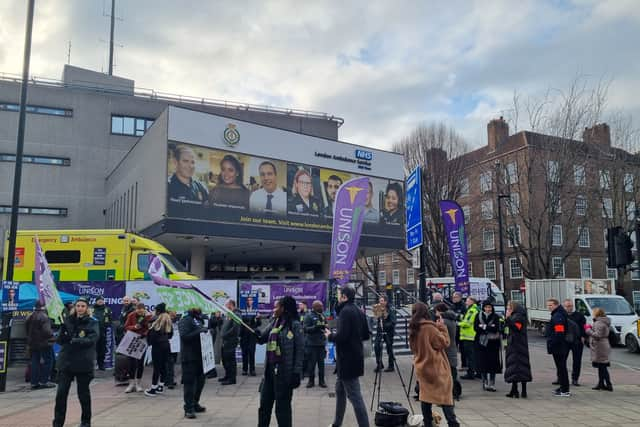

Antonia Gosnell, who has worked for the London Ambulance Service (LAS) for 33 years, told LondonWorld: “It’s been a hard decision but the right one. We’ve been pushed to this point.”
Advertisement
Hide AdAdvertisement
Hide AdThe 53-year-old union representative said: “We are understaffed; hospitals are suffering, as they can’t get enough nurses; and most importantly the public are suffering.
“I’m disappointed in the government. We’re an important service and we’d like to think the people in Parliament would recognise that and be willing to speak with us.
“But they’re not doing that.”
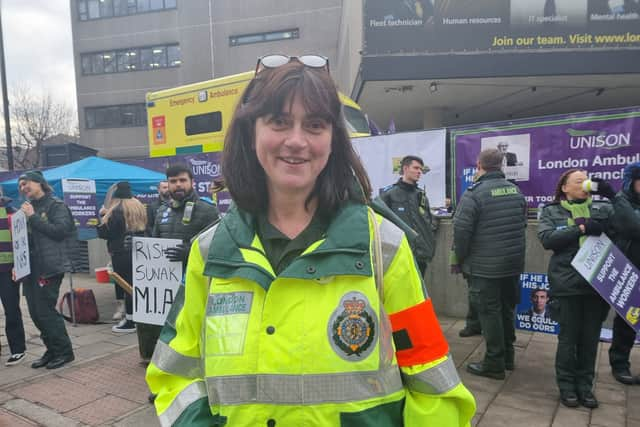

Lines of ambulances parked near the picket line are ready and waiting if needed, as ambulance unions have said workers will still attend incidents if “life and limb” are at risk.
Asked about the public’s fears on strike days, Antonia said if a major incident occurred: “All of this lot [paramedics] here would be in all those ambulances right there ready to go out.”
Advertisement
Hide AdAdvertisement
Hide AdRachel, a trainee emergency medical technician, said she was at the picket to “support my colleagues”.
She said: “I think the problem is there isn’t enough funding to do the job we want to do. We all care about patients and want to give them the best care and treatment we can.”
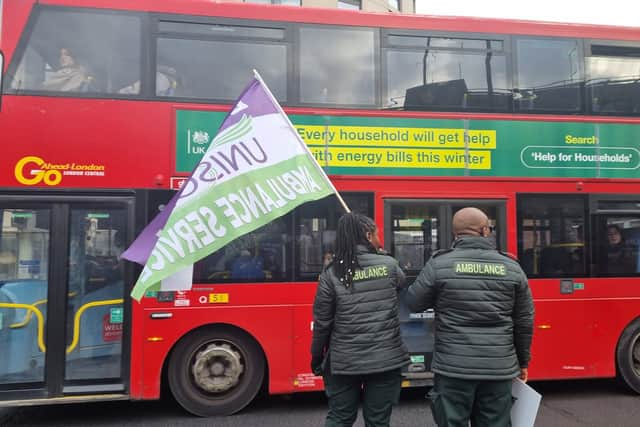

And she added: “On top of that people are feeling undervalued. They can’t afford to live on what they earn - especially in London.”
While Femi, an ambulance crew technician for seven years, added: “We’re here to provide moral support to our colleagues. We don’t believe we’re being given fair pay by government.
Advertisement
Hide AdAdvertisement
Hide Ad“We’re doing more than we used to do - with more patients and less staff.”
He told LondonWorld while he would not consider quitting his role, patients needed to understand the pressures the service was under.
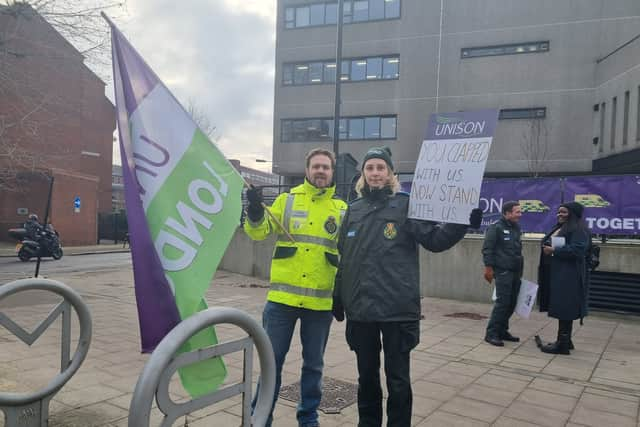

“I love my job [but] people should not call us for minor things,” he said.
“Some patients prevent others that actually need us… the frustration is just cycling around.
Advertisement
Hide AdAdvertisement
Hide Ad“They transfer the aggression from long queues and long waiting times on to us.”
Unite general secretary Sharon Graham told the BBC: "We’ve got a workforce crisis going on across the NHS and that’s manifesting itself most acutely in the ambulance service where people are at the really sharp end of seeing the effect of pay and staffing emergencies.”
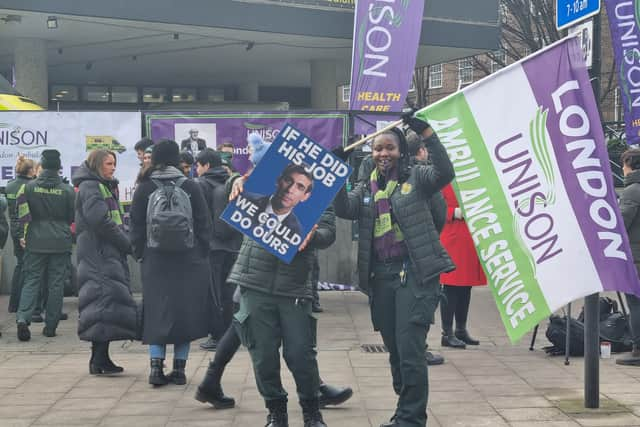

She continued: "None of those people who are out on strike want to be there. They want to be doing the jobs that they love and those jobs are just being compromised on a day-to-day basis."
Unison general secretary Christina McAnea said a "solution" to the strike was "staring the government in the face".
Advertisement
Hide AdAdvertisement
Hide AdHealth secretary Steve Barclay said the strike was "hugely disappointing" and despite contingency plans to mitigate safety risks, "there will inevitably be further disruption".
He added: "I have had constructive talks with unions about this coming year’s pay process for 2023-24, and am keen to continue talking about what is affordable and fair."
Nurses are set to strike alongside ambulance workers on Monday, February 6, which will mark the biggest day of industrial action for the NHS during the ongoing row over pay.
Comment Guidelines
National World encourages reader discussion on our stories. User feedback, insights and back-and-forth exchanges add a rich layer of context to reporting. Please review our Community Guidelines before commenting.
